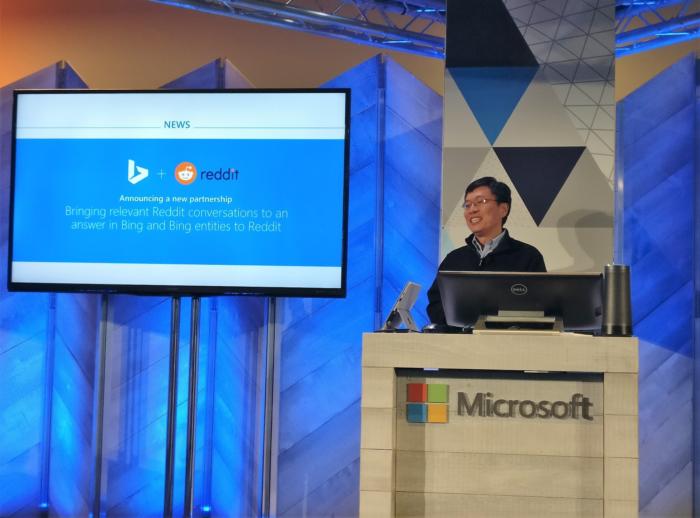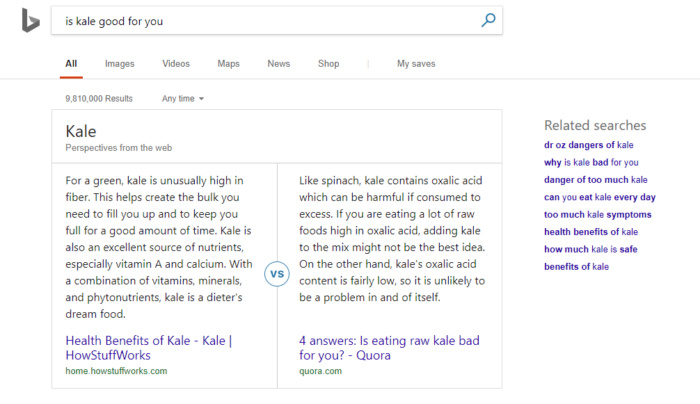
On Wednesday, Microsoft told a roomful of journalists that, on Bing, “alternative facts” would be considered the equivalent of the Washington Post.
Sure, that’s just my opinion. But that’s also the new approach that Bing’s rolling out over the next week: striking out beyond facts into a brave new world in which opinions matter, too. Eventually, Bing will respond to certain questions with answers that represent both sides of an issue, not just a list of search results. One of those new voices will be Reddit, a popular online community with millions of contributors.
You can probably imagine a scenario where two opinions—one for, one against—would be rather useful: Is the new Star Wars movie any good? What’s better, Android or iOS? Even more factual questions, such as whether cholesterol is good for you, might have some useful arguments on either side. But beyond that, the waters grow deep and dark, and Bing must tread carefully.

Mark Hachman / IDG
Is Obama a Muslim? Bing: Let’s hear from both sides
Kristina Behr, a partner design and planning manager for Microsoft’s AI division, chose perhaps the most innocuous search query possible when demonstrating Bing’s new approach: “Is kale good for you?” “So I don’t have to live in a bubble where everything about kale is amazing,” is how she explained her choice.
Unfortunately, she didn’t explain how Bing would handle thornier fundamental questions like “Is God real?” (In Bing’s current search results, God is.) In this case, Microsoft probably has a leg to stand on: Atheists deny God’s existence, Christians are certain God exists. No one truly knows, so Microsoft is off the hook by providing both viewpoints.

IDG
But positing the existence of the Almighty is child’s play compared to the holy war pitting science against religion. Does anyone believe that the world was created in seven days? That climate change isn’t real, or man-made? Yes, thousands (millions?) of fundamentalist Christians do—but that doesn’t change the fact that they’re wrong. Indisputably wrong. Absolutely wrong—but not in the eyes of a search engine that provides both “viewpoints.”
Jordi Ribas, the corporate vice president who leads the AI products organization (including Bing and Cortana) within Microsoft, acknowledges that the problem is a “fundamental issue that I think search engines are going to have.”
Sometimes the data is very clear: if you want to know when George Washington was born, there’s a single answer, Ribas said in an interview. “But there are all these other questions where there are different perspectives,” he said. “And there are some questions where the perspectives should have more weight than others.”
“It is a challenge,” Ribas added. “I think where we and competing engines started, was to find the most relevant answer. And I think that’s not the right approach in many cases. And so what we try to do… is to at least surface the different perspectives, and also surface them when all of this is authoritative.”
[“Source-timesofindia”]
